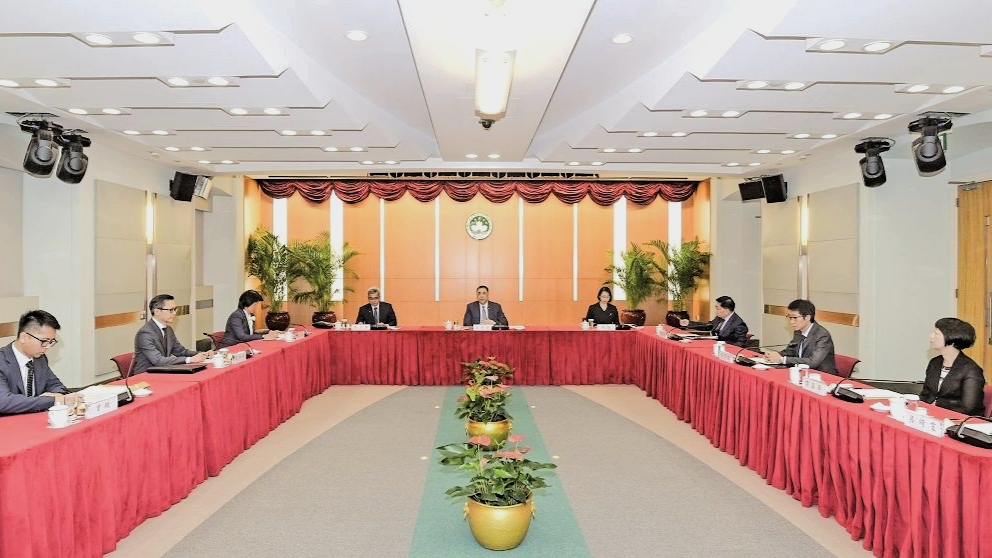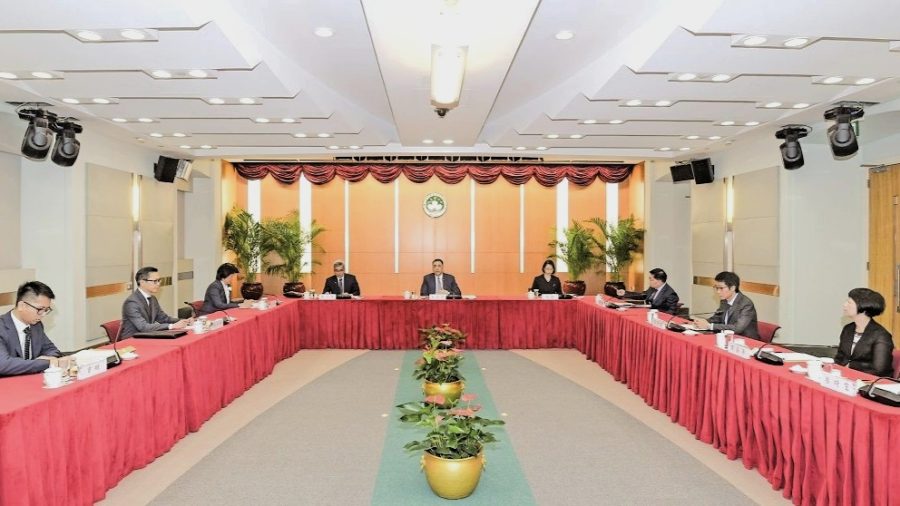Chief Executive Fernando Chui Sai On warned on Monday that the local government must be “very vigilant” about the possible adverse impact of the “surrounding” security situation on Macau’s civil society, and the possible widening of the potential risks.
Chui made the warning during this year’s second plenary meeting of the Commission on the Defence of National Security of the Macau Special Administrative Region (MSAR), according to a statement by the commission. The statement did not elaborate on the “surrounding” security situation.
Hong Kong has been hit by radical protesters’ rioting and vandalism since the middle of the year.
During Monday’s closed-door meeting of the commission, Chui also noted Macau’s major achievements in its national security campaign and education this year, saying that the local government has carried out multiple preparatory tasks and measures to ensure the smooth election of the fifth-term chief executive – which took place on August 25.
‘Complex’ security situation
According to the statement, Chui, who chairs the commission which was formally set up on October 4 last year, also said that given the current “complexity” of the security situation, the local government has been carefully planning its work concerning the protection of national security in Macau.
The chief executive, whose term ends at midnight on December 19, also said that the police have been “uncompromising” in enforcing the law, thus ensuring that Macau’s overall security situation remains under control, the statement pointed out.
During Monday’s meeting at Government Headquarters, Chui also said that the local government must pay close attention to the possible adverse impact of the “surrounding” security situation on Macau’s civil society, and the possible widening of the potential risks, according to the statement.
According to the Macau Post Daily, Chui was also quoted as saying that the local government will have to carry out the necessary “preventive and responsive” measures to ensure Macau’s continued peace and social stability, and strive to defend national sovereignty and the authority of the central government, so as to prepare Macau to welcome a string of celebratory and political events, namely the 70th anniversary of the founding of the People’s Republic of China (PRC), the 20th anniversary of Macau’s return to the motherland, and the change in government on December 20, when he will be succeeded by Ho Iat Seng.
The commission held its first plenary meeting on October 5 last year, one day after its formal establishment.
The commission consists of the chief executive, secretary for administration and justice, secretary for security, the commissioner-general of the Unitary Police Service (SPU), the chief-of-cabinet of the Chief Executive Office (GCE), the chief-of-cabinet of the Secretariat for Security (GSS), the director of the Legal Affairs Bureau (DSAJ), the director of the Judiciary Police (PJ), an advisor to the Chief Executive Office, and an advisor to the Secretariat for Security. The commission is chaired by the chief executive, with the secretary for security as its vice-chairman.
The commission is tasked with formulating local policies on the safeguarding of national security, coordinating tasks concerning local legislation on the protection of national security.
The commission has a raft of duties, including coordinating the government’s various tasks concerning the safeguarding of the country’s sovereignty, security and development interest; studying and evaluating the situation in Macau concerning national security and the city’s social stability; formulating local policies on the safeguarding of national security; and coordinating the government’s tasks concerning legislation on the protection of national security.
According to an administrative regulation (by-law) regulating the operation of the commission, the commission meets at least once every six months. However, the commission can hold extraordinary meetings upon the initiative of the chief executive or upon the written request of one-third of its members. The commission cannot meet without the presence of the chairman (chief executive) or vice-chairman (secretary for security).
The commission can only meet if at least two-thirds of its members are present. However, in the case of “exceptional urgency”, the chief executive may call a meeting even without the necessary quorum.






